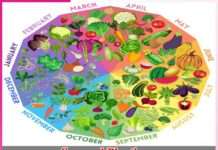the Role of Utensils in Preparing Nutritive Foods
In Indian traditions and culture, selection of the medium of cooking is necessary. Along with it, the selection of utensils also has equal importance.
We had seen in our childhood that till a certain age, only silver utensils were used for giving water, milk to kids and even the medicines were given with silver spoon.
Even today, a tradition is set by our elders that if it is not possible to use huge silver utensils for storing water, at least we should keep pure silver coins of British time in the water and let it be there. On alternate days when the water is changed and tank is cleaned, coins should also be cleaned. This makes the water germ free and cool in nature. This water is a medicine for your stomach and many other ailments.
It also keeps the mind cool. We have heard the stories of royal families using gold and silver utensils for having food. All these metals have direct effect on our body. In our early childhood we have seen pital (copper) utensils, having silver polish inside.
Every now and then a person called KALIWALA used to come and lit the fire and with a cotton type material, used to polish it from inside. Now the pital utensils are used only for decoration purposes. In the villages, these are used very rarely in the kitchen.
In the modern scenario, non stick utensils are easy and convenient to use. You can use it on gas as well as on induction stove. But due to this, sometimes important minerals are destroyed. Sometimes due to our own negligence, the food is spoiled or become poisonous. The utensils hold lot of importance in keeping the food fresh for a long time.
Table of Contents
The special features of metallic utensils are as follows:
Cast Iron:
In this type of utensils, carbon is also there with iron. Preparing food in these utensils help to mix some iron in the food. This fulfills the iron deficiency. It is very beneficial for the anemic patients to have food cooked in these utensils. The food cooked in these utensils should, however, not be kept in these utensils for long and must be transferred immediately to other pan. These days, the use of DHALVA or raw iron utensils has been minimized.
Aluminum:
Aluminum utensils are light in weight and are also very hot in nature. We should not prepare food in these utensils. These utensils not only have less hardness but they are also very reactive. With each citric and salty food cooked in them, it results in chemical reaction. There are chances that some metal of these utensils can get mixed in food. If tomato, tamarind and vinegar are boiled in these utensils then their taste changes altogether. If a large amount of aluminum quantity reaches the body, it absorbs the iron and calcium.
Copper:
The copper utensils are also hot in nature. Preparing food in these utensils is not advised. Especially citric and sour items should not be prepared in these utensils. Curd, pickle, lemon and orange should not even be kept in these utensils. The food prepared in these utensils can become poisonous. However, if the copper utensils have steel layer from inside, then you can cook food in these utensils and that too should be done rarely.
The experts advise to drink water kept in copper jug. This is good for stomach and liver. According to research, water kept in copper jug for more than 16 hours become germ free. But the PH level of the water is affected and the taste of the water is also changed.
Steel Utensils:
In the kitchen, generally steel utensils are used. These are cheap and best. The mixture of iron, nickel and chromium metals is stainless steel and it does not react to citric or salty foods. If the stainless steel utensils have a layer of copper in the base, it lasts long. Stainless steel utensils can be cleaned and maintained easily. There is no tension of polishing in these utensils. They can be also be cleaned with the minimum labour.
Also Care:
- The empty non stick utensils should not be kept on fire for long. On high temperature, the Teflon starts melting. Moreover steel spoon should not be used while preparing food in these utensils. Due to this, non stick utensils get damaged and possibility of mixing of Teflon in the food increases.
- Aluminum utensils when come in contact with oxygen make oxide. This is very harmful for the brain. We should not keep tea, salt, lemon, soda, tomato ketchup in these utensils.
- Copper utensil must be cleaned every time before storing water in it. The water which remains in the bottom of copper utensil can cause stomach problems.
- Use the cast iron utensils in limit. The excess iron in the body is not good for the heart.
- There is nickel in the stainless steel utensils. So it is better to use high quality of stainless utensils.
- Plastic bowls should not be used for hot soup, tea and hot food. According to the research of a Medical University in Taiwan, it has come to light that eating food in melamine crockery increases the possibility of kidney stone problem.
Hot noodles, soup should not be kept in these types of bowls. At the same time, do not get hot tea, coffee or food packed in plastic bags because through these bags, the polyvinyl, chloride and polyethylene present in polythene bags reaches the body. Due to this possibility of kidney and throat cancer occurs.
The nutritive value of the food largely depends on the utensils in which we cook our food and the way of preserving food also matters. Glass crockery is the best for eating purposes. The only problem about this is that it is very difficult to maintain it. Especially in the houses where there are kids, the chances of breaking of these utensils are more.
So it is advisable to clean it separately and not let the maid servant clean it carelessly. For proper health it is advised to cook the food in proper utensils and proper care should be taken to serve it.
When you clean used utensils, it is always advisable to put them upside down so that the whole water goes away. Instead of cleaning it with cloth after washing, put them upside down so that all the water goes away. – SHARMILA
Follow us on Facebook, Twitter, Google+, LinkedIn and Instagram, YouTube to get more updates related to sachi shiksha Spiritual Magazine, articles.
















































